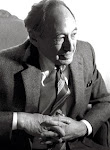According to Viking mythology, eclipses occur when two wolves, Skoll and Hati, catch the sun or moon. At the onset of an eclipse people would make lots of noise, hoping to scare the wolves away. After some time, people must have noticed that the eclipses ended regardless of whether they ran around banging on pots.
Ignorance of nature's ways led people in ancient times to postulate many myths in an effort to make sense of their world. But eventually, people turned to philosophy, that is, to the use of reason—with a good dose of intuition—to decipher their universe. Today we use reason, mathematics and experimental test—in other words, modern science.
Albert Einstein said, "The most incomprehensible thing about the universe is that it is comprehensible." He meant that, unlike our homes on a bad day, the universe is not just a conglomeration of objects each going its own way. Everything in the universe follows laws, without exception.
Newton believed that our strangely habitable solar system did not "arise out of chaos by the mere laws of nature." Instead, he maintained that the order in the universe was "created by God at first and conserved by him to this Day in the same state and condition." The discovery recently of the extreme fine-tuning of so many laws of nature could lead some back to the idea that this grand design is the work of some grand Designer. Yet the latest advances in cosmology explain why the laws of the universe seem tailor-made for humans, without the need for a benevolent creator.
Stephen Hawking for WSJ
September 9, 2010
Why God Did Not Create the Universe
Labels:
Brave New World,
NewSpeak,
Pop,
Signs of the Apocalypse,
Transience
Subscribe to:
Post Comments (Atom)




No comments:
Post a Comment